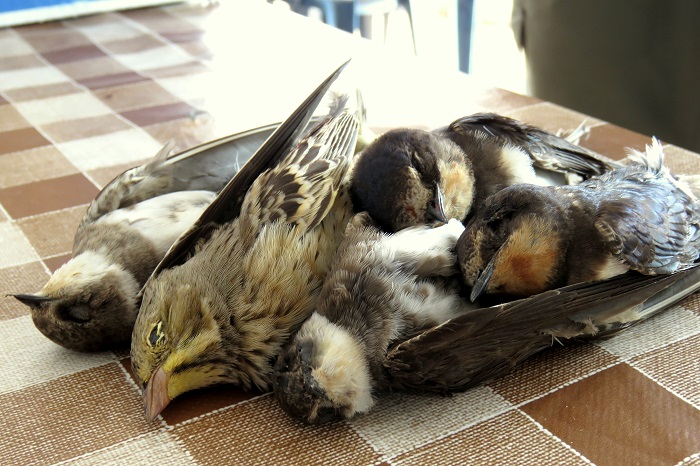Songbird poaching in Lebanon

Songbird poaching is widespread in Lebanon. Almost every licensed hunter shoots songbirds - they are by far the most common prey in the country. However, the hunting law only allows the shooting of song thrush, mistle thrush, fieldfare as well as calander lark and chaffinch. The official hunting season starts in September and ends in January.
The sad reality is very few hunters actually stick to the regulations. On the one hand, warblers are regarded as unofficially huntable - hundreds of thousands are shot everywhere without little regard for the species and often presented proudly without any guilty conscience. Many people often do not consider the hunting of warblers to be a problem worth mentioning. A lack of knowledge of the species is fatal and there is often simply no understanding of the need or rational for protection of the non-huntable songbird species. While many hunters are aware that large bird species such as birds of prey, storks, herons and pelicans are protected, they consider small bird species to be generally huntable.
In this way, swallows, robins, leaf warblers, shrikes and chats as well as finches, buntings, pipits and wagtails become victims of regular hunting without anyone being aware of any guilt. In our research for trophy photos on the Internet and in the inspections during our bird protection camps, we have now identified more than 140 species of songbirds as hunting prey. And new species are constantly being added to the list.
The solution of the problem does not lie simply in criminal prosecution - since practically each hunter is concerned, authorities and courts would be hopelessly overrun. This calls for better hunting training as well as general environmental education - a project that will probably take decades but there is promising educational work and people engagement being done by a number of our partner associations such as Society for the Protection of Nature in Lebanon (SPNL) and bird watching camps with the Ornithological Society of the Middle East (OSME).






